Plant-Powered Gut Health, the Best Live Cultures for Vegans

In today's fast-paced world, maintaining optimal gut health is more important than ever. Often referred to as the “second brain,” your gut plays a central role in digestion, immunity, and even mood regulation. One of the easiest ways to support your gut is by incorporating live cultures into your routine.
But what are live cultures exactly? Live cultures are beneficial bacteria similar to those found in fermented foods that help maintain a healthy balance in your gut microbiome. They’re often associated with the term “probiotics” in scientific literature, although UK regulations restrict the use of that word on food products. Regardless of terminology, these friendly microbes can help support intensive bowel function and overall digestive wellness.
If you’re vegan or avoiding dairy, finding the right plant-based, dairy-free options with live cultures can be tricky. But don’t worry, we’ve done the research (and taste testing!) to help you discover delicious, effective ways to nurture your gut the vegan way.
Why gut health matters
Your gut is home to trillions of microorganisms, including bacteria, fungi, and viruses, that make up your gut microbiome. These tiny allies are essential for breaking down food, absorbing nutrients, and supporting your immune system. A balanced microbiome is linked to better digestion, stronger immunity, and even a brighter mood. Modern life, however, can throw your gut off balance. Stress, lack of exercise, and overly processed diets are common culprits. That’s where live cultures come in. These beneficial bacteria can help support digestion, rebalance the microbiome, and promote overall gut wellness.
The vegan gut health solution
Enter Biomel, your plant-based ally in gut health. Our range of vegan, lactose-free, and dairy-free drinks and powders are made with billions of live cultures, plus added nutrients to help you feel your best every day.
Why choose plant-based live cultures?
-
Up to 75% of people are lactose intolerant
Many traditional gut health drinks and supplements contain dairy and lactose, the sugar found in milk, which can cause discomfort for a large portion of the population. In fact, studies show that up to 75% of people globally have some degree of lactose intolerance, and it’s particularly common in individuals with IBS. At Biomel, we skip the dairy altogether. All our products are 100% vegan, dairy-free, and lactose-free, making them gentle on your digestive system while still delivering intensive bowel support. Plus, we’ve added beneficial nutrients like Calcium, so you’re getting all the good stuff without any of the tummy upset.
-
Flavours you’ll love
Let’s be real, some gut-friendly drinks can taste… a bit funky. But not Biomel. With a creamy texture and indulgent flavours like Belgian Chocolate and Pure Vanilla, our drinks make gut care feel like a treat, not a chore.
-
Better for you and the planet
Choosing plant-based isn’t just good for your gut, it’s good for the planet too. Our vegan formulations are designed with a smaller environmental footprint, helping you make choices that are kind to both your body and the Earth.
Real feedback from the Biomel community
“I’ve been vegan for nearly two years and love trying nutrition-focused products. Biomel stands out for both taste and health benefits. I have one every morning, sometimes two! Please never stop making these!”— Beth G.
Are all live cultures vegan?
Not always! Many gut health products contain hidden animal-derived ingredients or are fermented using dairy-based substrates. Even some capsule supplements may be bulked with lactose or encased in gelatin. That’s why we created Biomel, a naturally vegan, lactose-free, and dairy-free range, designed to help you power up your gut health the plant-based way, without second-guessing the label.
What makes biomel different?
-
100% Plant-Based: Every product in our range is certified vegan and free from dairy.
-
Delicious Flavours: No more chalky textures or sour aftertastes, just creamy, tasty goodness.
-
Nutrient Boosted: With billions of live cultures plus added vitamins and minerals like Calcium, every serving is packed with benefits.
-
Natural Ingredients: We use only high-quality, natural ingredients for gut health you can trust.
How to fit Biomel into your routine
Whether you're always on-the-go or prefer a slow start to your day, Biomel makes gut care simple:
-
Grab a Gut Health Drink on your way out the door.
-
Stir Biomel Complete Gut into your morning smoothie.
-
Sip a dairy-free drink post-workout for a refreshing dose of live cultures.
Embrace a gut-friendly lifestyle
Gut health isn’t just a trend, it’s a long-term commitment to feeling your best. With Biomel, supporting your digestive wellness has never been easier, tastier, or more in line with your plant-powered lifestyle.
Trusted sources
https://www.ncbi.nlm.nih.gov/pmc/articles/PMC10504201/
https://pubmed.ncbi.nlm.nih.gov/3140651/
https://pubmed.ncbi.nlm.nih.gov/26393648/
https://www.ncbi.nlm.nih.gov/pmc/articles/PMC9818925/
Your well-being is our top priority. While we take great pride in our expertise in gut health and overall wellness, we understand that every gut is unique. The content we provide is not meant to diagnose, treat, cure, or prevent any illness, or replace the advice of your GP. We strongly encourage you to consult with a healthcare professional if you have any health concerns. Rest assured, we are here to support you throughout your journey, so you are never alone. Our in-house nutritionists will always be here to support you on your journey to optimal gut health.



